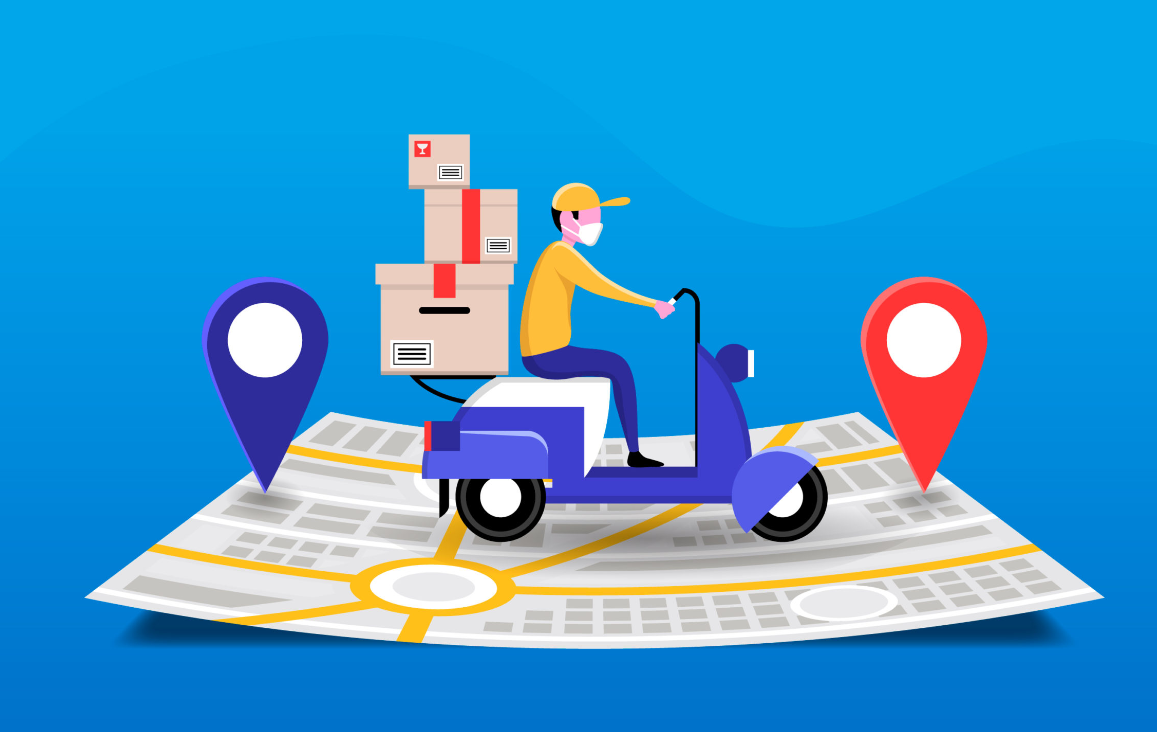In e-commerce and logistics, efficient delivery has become vital to business success. One of the biggest challenges companies face is ensuring that their products reach customers quickly and reliably during the final mile, the last leg of the delivery process. This stage, where goods move from a distribution hub to the customer’s door, is often the supply chain’s most complex and costly part.
As consumers increasingly expect faster and more convenient services, finding effective final-mile delivery solutions has become crucial for businesses looking to stay competitive and meet customer expectations.
Importance of Final Mile Delivery
With consumer expectations on the rise, the final mile of delivery is becoming increasingly crucial. Shoppers demand quick, reliable service; anything less can significantly affect their satisfaction. Here’s why final mile delivery matters more than ever:
- Speed and Efficiency: Customers expect their packages to arrive quickly. Delays or inefficient delivery processes can lead to frustration and lost sales.
- Real-Time Tracking: Shoppers always want to know exactly where their orders are. Real-time updates are now a standard expectation.
- Flexible Options: From same-day delivery to scheduled time slots, flexible delivery choices are key to meeting modern customer needs.
- Customer Satisfaction: Poor final mile delivery can result in negative reviews and damage your brand’s reputation.
Technology-Driven Final Mile Solutions
Technology is one of the most significant drivers of change in final-mile delivery, making the last step faster, more reliable, and more cost-effective.
1. Route Optimization Software
Route optimization is key to efficient final mile delivery. Software that calculates the quickest, most fuel-efficient routes saves time and cuts down on delivery costs. Modern algorithms can analyze traffic patterns, weather conditions, and delivery locations to ensure drivers follow the most efficient paths.
Companies that use route optimization software see faster deliveries and reduced fuel consumption, leading to lower costs and a smaller environmental footprint.
2. Real-Time Tracking and Customer Communication
Customers today expect full visibility of their shipments. Real-time tracking lets consumers see exactly where their package is and when it will arrive. This transparency increases customer satisfaction and reduces the number of inquiries about delivery status.
Automated notifications via text or email keep customers informed throughout the process, from dispatch to doorstep. This kind of proactive communication also allows customers to reschedule or reroute deliveries, further improving the flexibility and efficiency of the service.
3. Drones and Autonomous Vehicles
While still in the testing and early implementation stages, drones and autonomous vehicles represent the future of final-mile delivery. Drones are particularly useful for delivering small parcels to remote or hard-to-reach locations, while autonomous delivery vehicles can efficiently handle urban routes.
Both technologies promise to reduce labor costs and speed up deliveries, especially in areas with heavy traffic or challenging terrain. Companies like Amazon and UPS invest heavily in these innovations, setting the stage for a revolution in final-mile logistics.
Innovative Delivery Models
In addition to technology, companies are also exploring new delivery models to meet the growing demands of consumers. These innovative approaches focus on flexibility, speed, and reducing costs in the final mile delivery process.
- Crowdsourced Delivery Networks: One popular solution is crowdsourced delivery, where companies tap into a network of freelance drivers to complete the final mile. Like ride-sharing services, crowdsourced delivery allows companies to scale up or down quickly depending on demand.
- Local Micro-Fulfillment Centers: Companies are increasingly setting up micro-fulfillment centers closer to their customers rather than relying solely on large, centralized warehouses. These smaller, local hubs can store high-demand items, allowing for faster, same-day, or next-day delivery.
- Parcel Lockers and Pickup Points: To mitigate failed deliveries and enhance convenience, many companies offer parcel lockers or designated pickup points where customers can retrieve their packages.
Data Analytics in Final-Mile Delivery
Data analytics play a crucial role in refining final mile delivery processes. Companies can make informed decisions that improve efficiency by collecting and analyzing data on:
- Delivery times
- Customer preferences
- Traffic patterns
- Other factors
Predictive analytics can help businesses anticipate peak delivery times, plan for demand fluctuations, and optimize delivery networks. This data-driven approach ensures that resources are used efficiently and that customers receive their packages faster.
Real-time data allows companies to monitor the performance of their delivery operations. Companies can quickly adjust routes or assign new drivers to ensure timely deliveries if a delay occurs. The ability to respond dynamically to challenges is essential in the fast-paced delivery industry.
Adapt Reliable Final-Mile Delivery Solutions
Final mile delivery is a critical component of the supply chain, and refining this process can give your business a significant edge. Embracing technology-driven solutions, along with exploring innovative delivery models, can greatly enhance your delivery efficiency.
To stay ahead of the curve and ensure your final mile delivery meets the highest standards, investing in reliable and forward-thinking solutions is essential. Now is the best time to elevate your delivery operations with DutchX and transform your logistics to help you achieve peak performance in the final mile.
Hi, I am Adam Smith, Admin Of TechSketcher, Creative blogger and Digital Marketer.
